Veterinary & Biosecurity
Making vaccines available & accessible to women & other marginalized livestock farmers
Published
2 years agoon
By
Mak Editor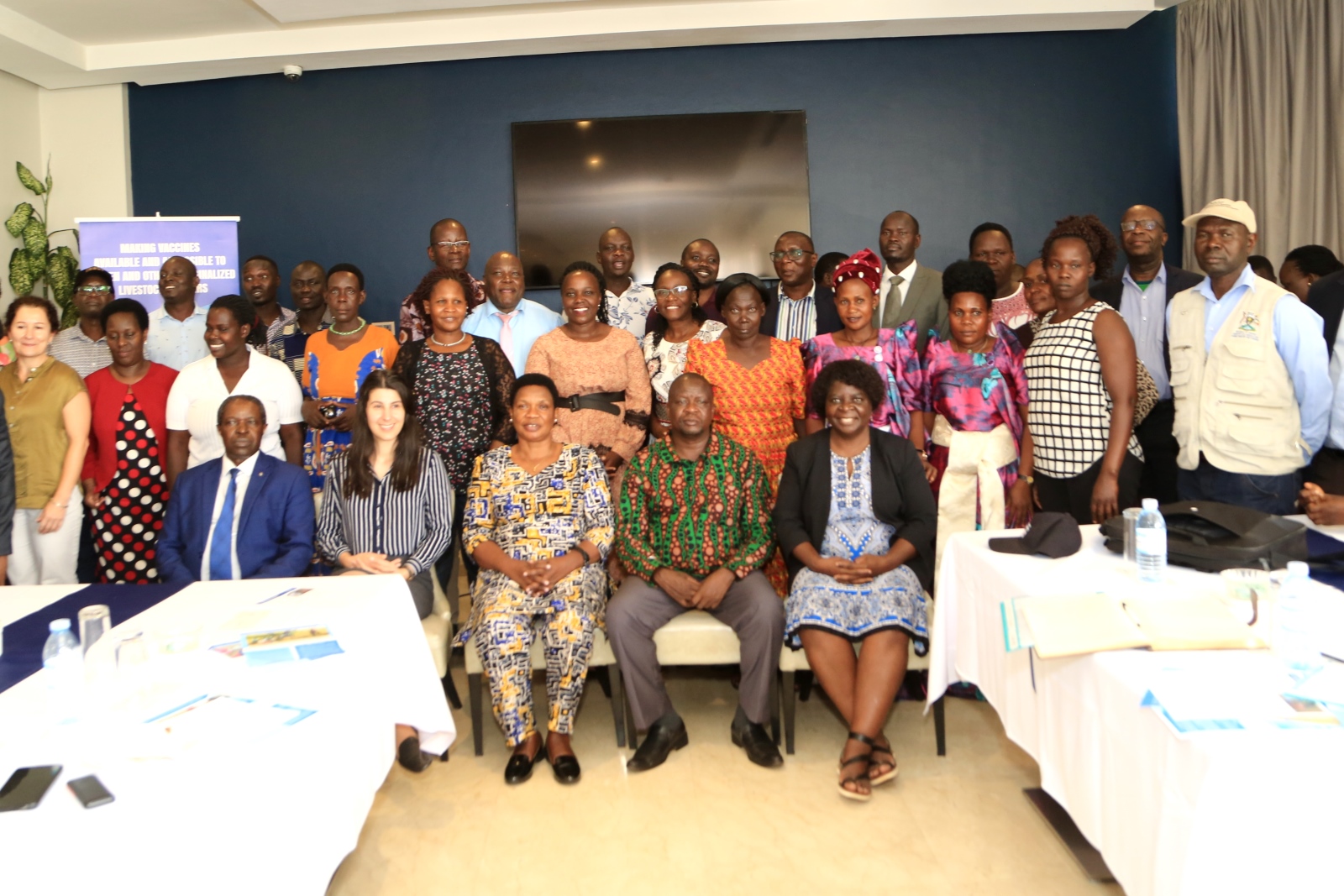
Women in livestock farming in Uganda have been empowered and trained on vaccines access and proper administration for both animals and poultry. This was during a project dubbed the Livestock Vaccine Innovation Fund (LVIF) undertaken to address the barriers faced by women in livestock vaccine systems in Uganda and generating new evidence on how women can better benefit and participate in the vaccination systems.
The Livestock Vaccine Innovation Fund (LVIF) was funded by Canada International Development Research Centre (IDRC), Global Affairs Canada (GAC) and Bill and Melinda Gates Foundation (BMGF) to support the development of affordable livestock vaccines, targeting diseases that affect women and men who are livestock keepers. The project has been implemented through a set of research action based accomplishments including;
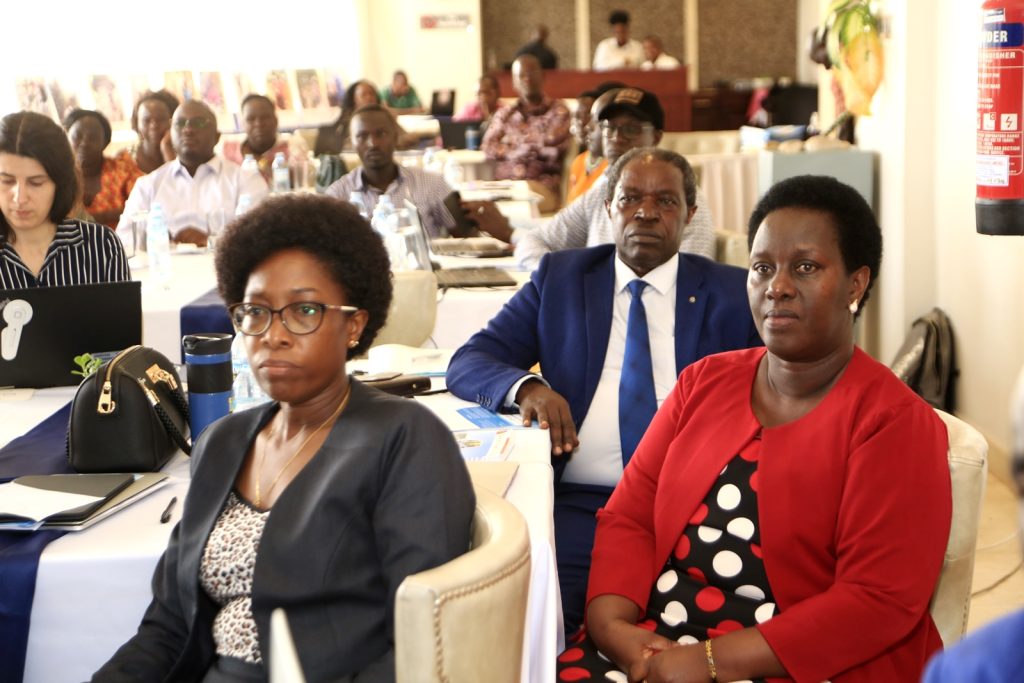
The SHeVax+ research (hearing Their Voices, Action Research to Support Women’s Agency and Empowerment in Livestock Vaccine Distribution, delivery and Use is a partnership between the Cumming School of Veterinary Medicine at Tufts University and the Africa One Health University Network (AFROHUN) together with their implementing partners including Makerere University, University of Nairobi and University of Rwanda. Prof. William Bazeyo is the Chief Executive Officer (CEO) of AFROHUN. The project assessed the state of women’s empowerment and gender parity on the vaccine value chain, identified key entry points among women smallholder farmers and entrepreneurs to contribute to and benefit from livestock vaccines thereby improving livestock production and livelihoods. The project was implemented in Sembabule district in Uganda, Machakos County in Kenya, and Nayagatare district in Rwanda.
Advancing Women’s Participation in Livestock Vaccine Value Chain Nepal, Senegal and Uganda research. Implemented by the University of Florida (UF) in collaboration with Makerere University, the project aimed at increasing women’s use of pest des petits ruminants (PPR) vaccines for their small ruminants in Nepal, Senegal, and Uganda as well as Newcastle Disease vaccines for their poultry in Senegal. Recognizing the fact that there are multiple factors that prevent women from vaccinating their animals, most often related to gender and intersectional issues such as class, ethnicity, disability and geographic location, the project introduced the Gender Intersectional Transformative Approach (GITA) with the aim of working with women livestock owners, all levels of animal health workers and trainers with a transformative mind of opening up spaces to allow full participation in the livestock vaccination value chain. In Uganda, the project was implemented in Karamoja Sub region targeting selected sub counties in four districts of Abim, Amudat, Kotido and Moroto.
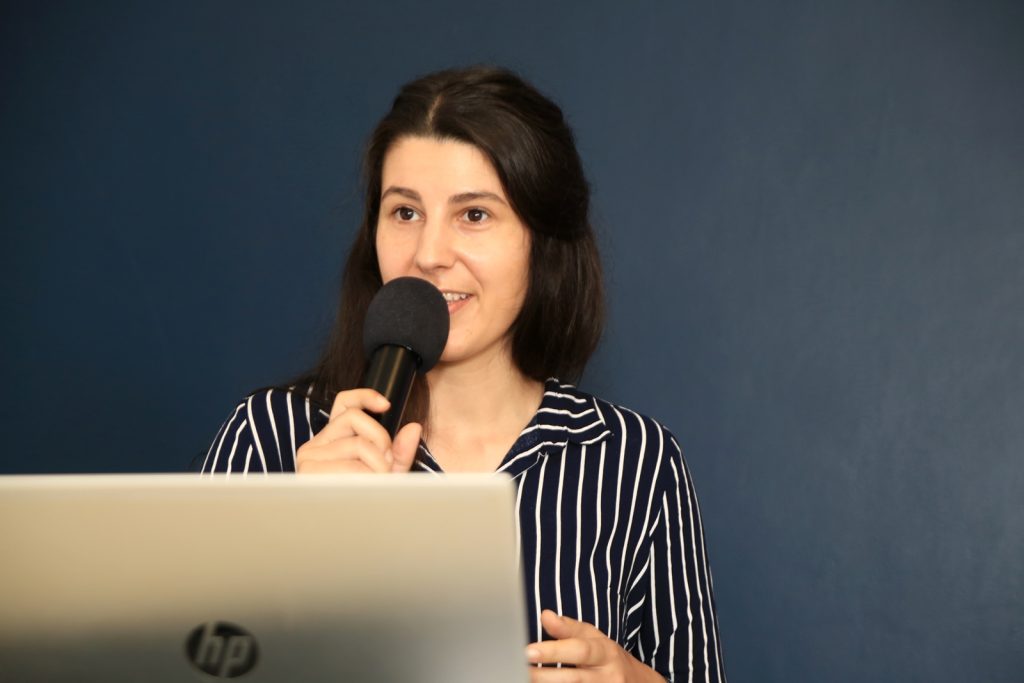
According to Dr. Evelyn Baraké, the Project Officer- IDRC, the Livestock Innovation Fund was initiated to accelerate the development of new vaccines against neglected livestock diseases, increase the efficacy, marketability and use of existing livestock vaccines and fostering effective partnerships between vaccine researchers and public and private sector actors. The project also focused on animal diseases posing the greatest risk to poor livestock keepers in Sub-Saharan Africa, South and Southeast Asia.
“Our program on Women empowerment and Livestock Vaccines has enhanced the mapping exercise on livestock vaccine value chains. Through this program, we have been able to identify barriers preventing women from accessing vaccines and sought out the effective interventions to increase the demand for vaccines and their use,” she noted.
Dr. Evelyn Baraké also mentioned that IDRC has utilized the programme approach to define and measure changes in gender norms and empowerment hence fostering gender transformative impact.
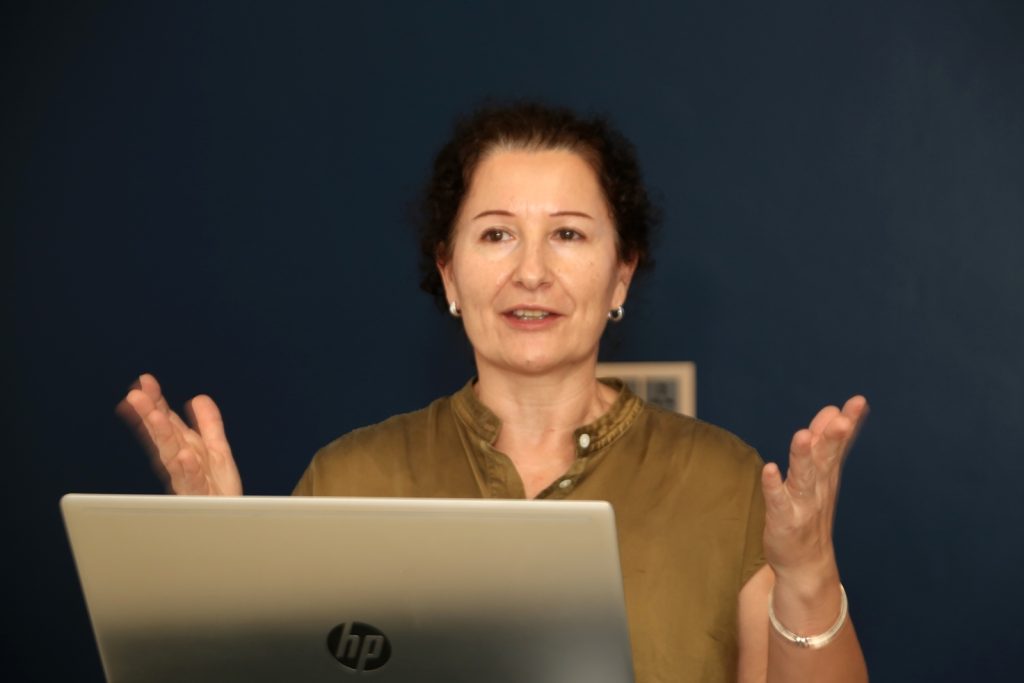
Majority of rural households in low developing countries are engaged in livestock rearing. This activity is undertaken by both women and men in most cases who are predominantly agro-pastoral smallholders within mixed farming systems. According to Dr. Nargiza Ludgate- the Co-Principal Investigator of the project; Advancing Women’s participation in livestock vaccine value chain, gender and attitudes of animal health service providers can affect their veterinary practice and quality of care. Therefore, developing an understanding of how gender and perceptions can influence veterinary practice is essential to improve the reach and quality of service delivery.
In Uganda, women are often left out of agricultural extension services and technical support. This is because household power imbalances play a key role in animal health services. In the livestock vaccine value chain, women and other marginalized groups such as minority ethnic groups, the elderly and persons living with dis-abilities have less access than men to key inputs such vaccines as well as limited ability to influence decision-making on vaccination and animal health within the households. In addition, women tend to miss out on veterinary services due to the deep- rooted social- cultural biases at household and community levels.
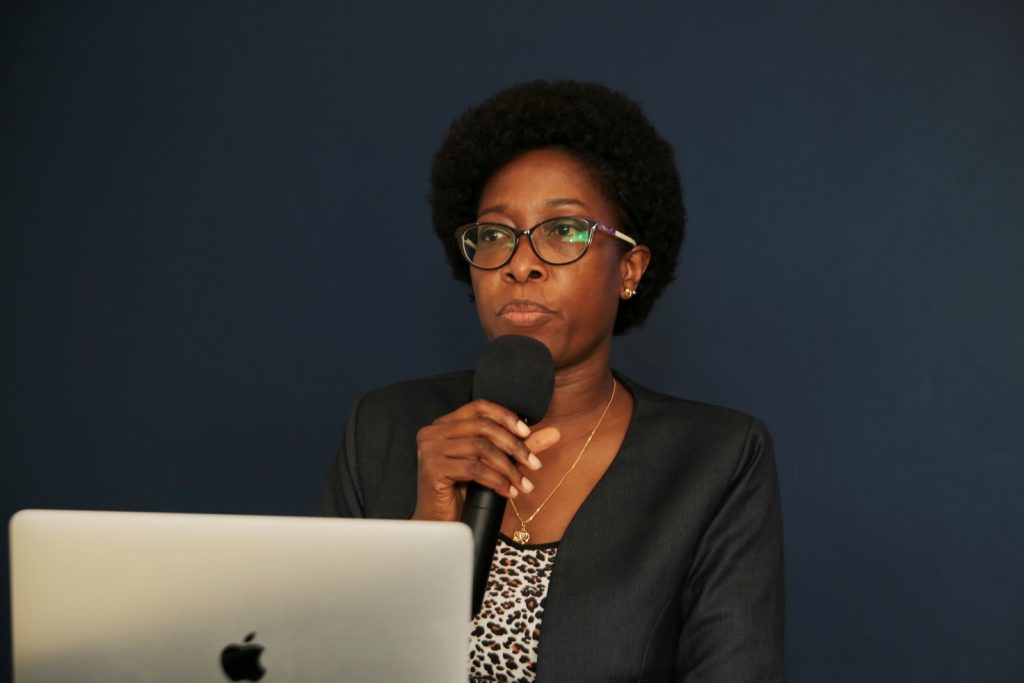
“The unvaccinated animals of women and other marginalized groups are at a higher risk of infection and can spread diseases easily to other livestock. This, consequently undermines community level and global diseases control interventions, such as eradication of peste des petis ruminants by 2030,” noted Agnes Yawe, Head of Grants and Resource Mobilization/ Partnerships, AFROHUN.
Yawe also highlighted the bigger gender gap that has for long existed in the current veterinary curriculum in Uganda when she said, “this curriculum is set by the National Council of Higher Education (NCHE) and must meet the World Health Organization (WHO) for Animal Health standards for veterinarians or para- veterinarians. However, the primary focus of the current curriculum is directed to scientific and technical knowledge or the “hard skills” with little or no space for soft “soft skills” such as gender responsive communication, empathic listening, effective communication and community engagement.”
She further noted the need to integrate gender concepts in refresher courses and workshops for veterinarians and other animal health service providers to enrich their understanding on how best to reach out to women and other marginalized groups.
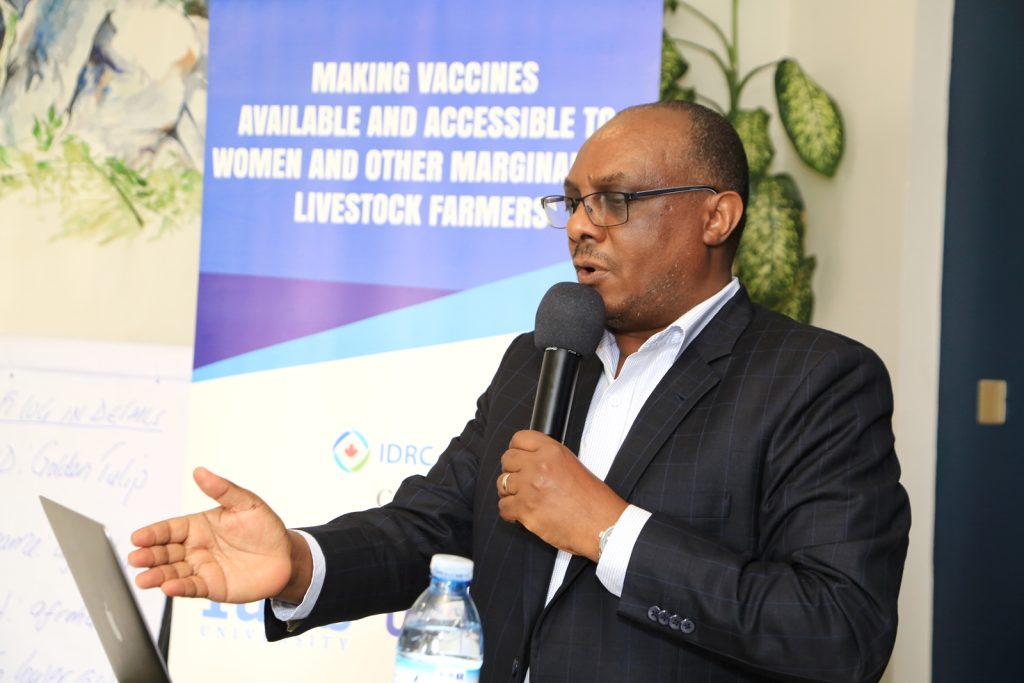
Prof. Anthony Mugisha, SheVax Country Lead and Co-Principal Investigator in Uganda highlighted the need to increase women’s access to communication tools as a way of enhancing their access to information.
“Women’s limited access to mobile phones and community networks that pass on information also means that they often miss out on the messages related to animal health campaigns. Additionally, those livestock keepers (women and men) who are poor, elderly or living with disabilities or belong to an ethnic group such as the Tepeth who live far away from the community centres on the slopes of Mount Moroto are always left out by veterinary extension agents,” he said.
On Monday 5th March 2023, a multi-stakeholders meeting was convened at Golden Tulip in Kampala, Uganda to; –
- Engage key stakeholders in the livestock vaccine value chain
- Showcase promising approaches for gender responsive and inclusive livestock vaccine value chain
- Disseminate research findings and policy recommendations with key stakeholders
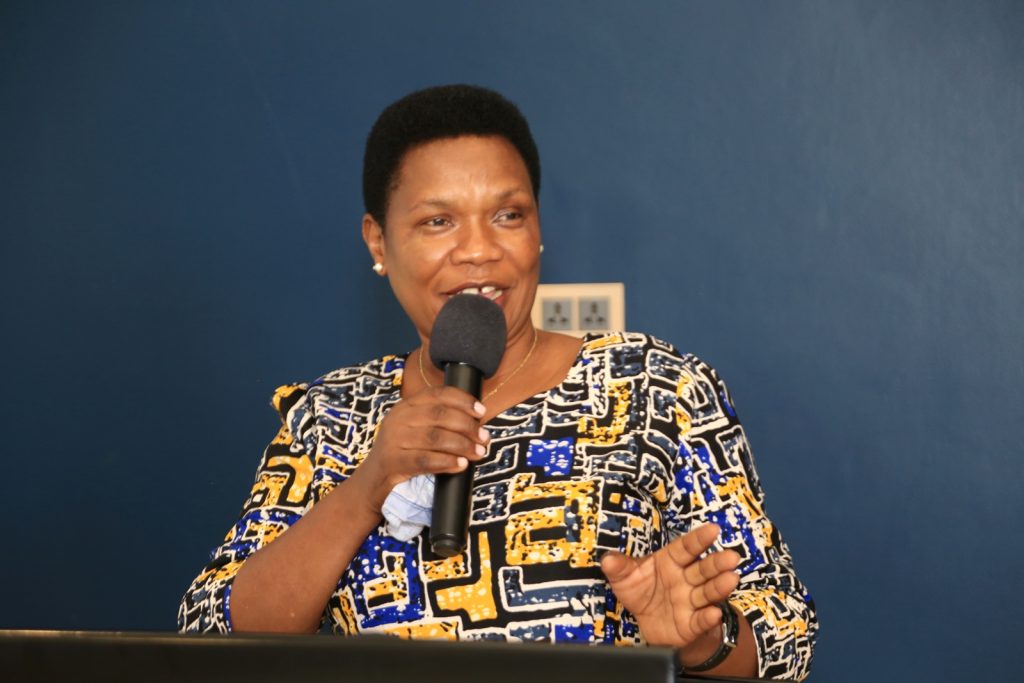
The meeting was officially graced by Hon. Janet Akech Okori-moe, Woman Member of Parliament of Abim district and the Chairperson Agriculture committee of Parliament of Uganda and attended by livestock farmers, policy Makers, research and scientists and media.
Speaking at the meeting, Hon. Janet Akech Okori-Moe said that small ruminants such as goats, sheep and poultry form a bigger part of livelihood enterprise and provide key benefits to most smallholder farmers especially women in the developing countries including Uganda. She also noted that whereas this is so, the animal value chain right from production up to the end point of selling the product quite often leaves out women and other vulnerable groups.
“It is estimated globally that approximately 262 million people at the worst poor keep livestock for food security and income generation and women represent two thirds of this total population. Women being smallholder farmers, face serious challenges and therefore the need to support them, build their confidence in a patriarchal society and allow their participation in matters that affect them through equipping them with information and mindset change training sessions,” she noted.
“Available record also shows that women have poor access to vaccines for the few livestock they manage. They are believed to be good animal care takers compared to their male counter parts hence strategies are needed to ensure that women’s ability to participate and benefit from the vaccine value chains is realized,” she added.
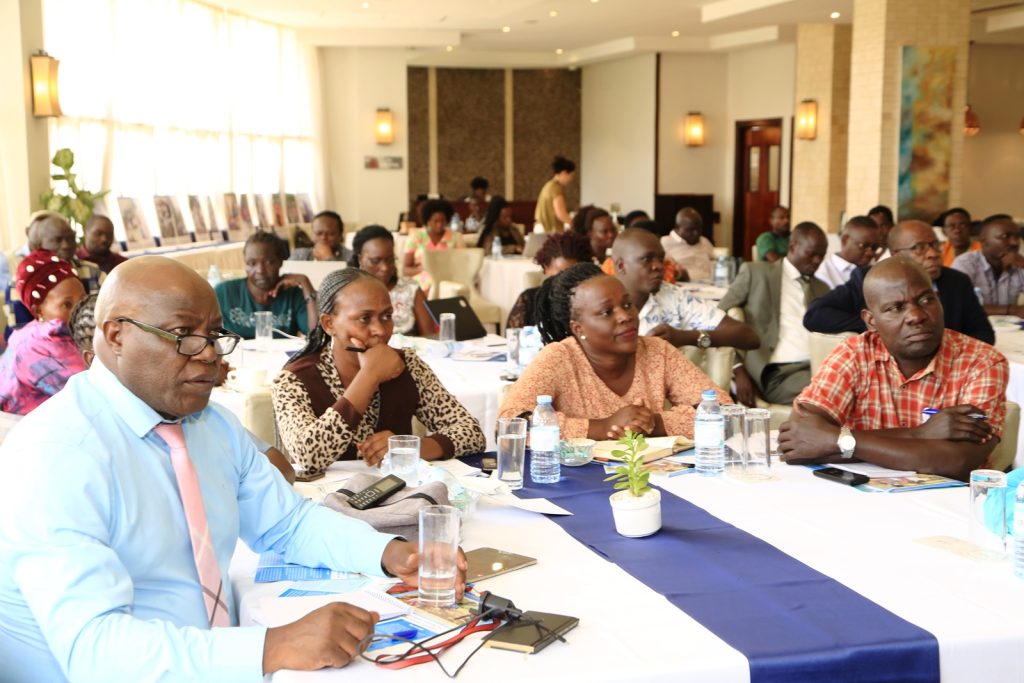
With reference to the existing village health teams, Hon. Janet Akech Okori-Moe called for the consideration for formation of the village animal health teams to attend to challenges affecting livestock farmers in Uganda. She as well urged policymakers to enhance their actions and discussions that support the need to address animal health challenges in Uganda.
Highlighting government support towards livestock farming in Uganda, Hon. Akech Okori-Moe informed participants of the recently launched government Scientific Vaccine Trials that are currently being tested in five centres in Uganda including two prison farms. She acknowledged the tremendous work done by experts from Makerere University, School of Veterinary Medicine at Tufts University, the University of Florida (UF), and the Africa One Health University Network (AFROHUN) through research to empower more women in livestock farming.
In the same spirit, the Honourable Member of Parliament thanked Canada International Development Research Centre (IDRC), Global Affairs Canada (GAC) and Bill and Melinda Gates Foundation (BMGF) for supporting programmmes tailored at addressing dilemmas surrounding animal health in Uganda.
“Thank you for building confidence in women. With your support, their voices are being heard, their actions are being felt, their participation is being noticed in animal health promotion and I pray that this research is replicated with resources and time allowing to other equally deserving areas,” she said.
The project success stories
According to Dr. Hellen Amuguni, the Principal Investigator of Shevax project, Dr. Hellen Amuguni, the project was able to;-
- Train 24 Animal Health Service Providers and well quipped to serve 140,000 households.
- Over 1500 people have received animal health training.
- 1,200 Vaxxer calendars have been disseminated.
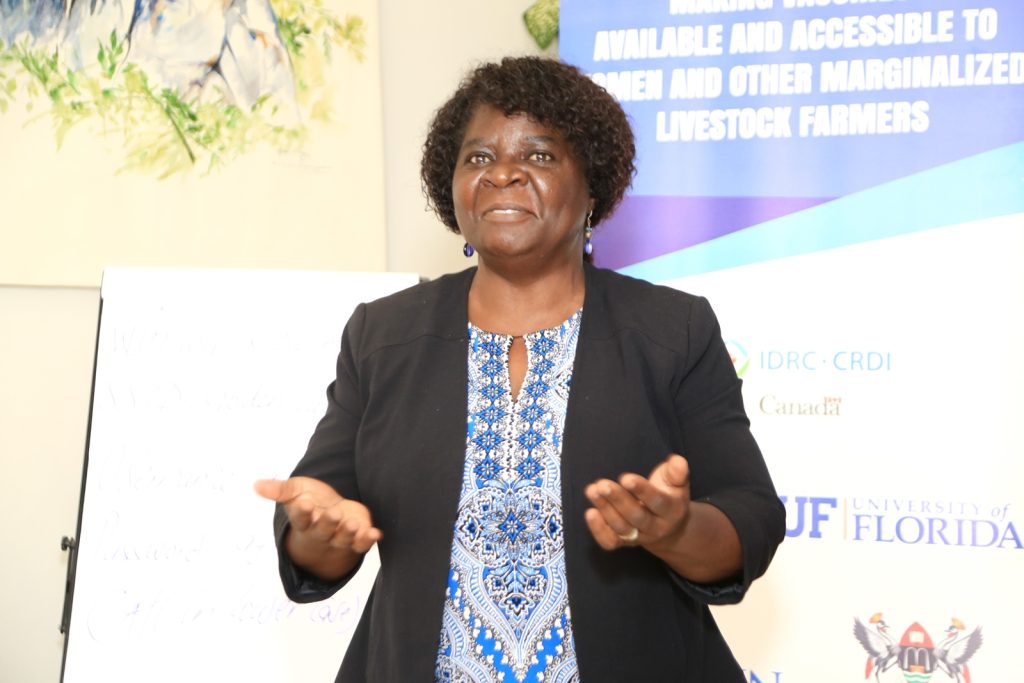
She acknowledged the projects efforts to equip farmers with solar powered fridges, vaccine kits and trainings on how and when to access and administer the vaccines to animals and poultry.
Three policy briefs on making vaccines available and accessible to women and marginalized livestock farmers; Gender-responsive and inclusive veterinary extension for health animals, reduced poverty and empowered women; and Gender and social inclusion training for veterinary animal health services providers were developed and shared to key stakeholders.
The project also facilitated the development of IEC materials in form of posters and comic books written and translated in the local languages of the communities that were engaged during the project implementation process.
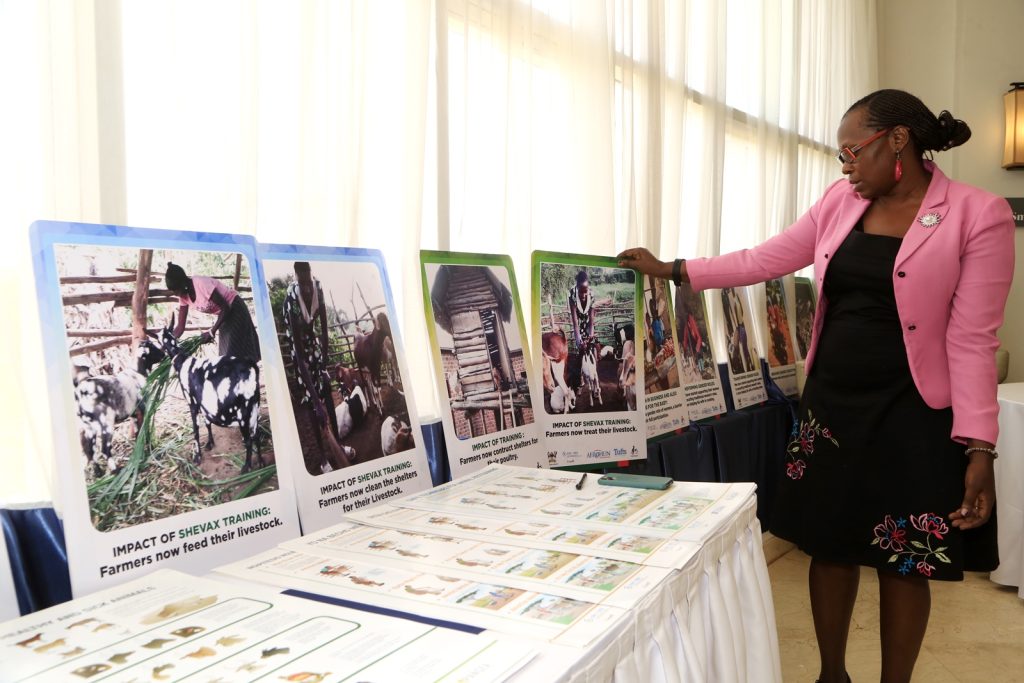
Women were also trained in basic skills in photography as a way of expressing themselves, tell their stories and enhancing their voices on livestock farming. In seeking to transform the veterinary extension services to become more gender aware, responsive and inclusive, the team recommended the following:
- Putting gender-inclusive livestock policies into practice through actual procedures or processes to improve vaccination programs
- Fostering collaborations between animal health technical providers and community development service providers to reach stakeholders who are left behind
- Gender responsiveness of service provision should be an integral part of animal health technical trainings
- Including women along the animal and poultry Vaccine Value Chain (VVC) improves the efficacy and efficiency of vaccination programs by reaching underserved smallholders
- Government and private Animal Health Service Providers (AHSPs) need to recognize that socio-cultural issues at household and community level prevent women and other marginalized small holders from using and engaging as providers of livestock vaccine services
- Public- private collaboration within the livestock vaccine value chain needs committed leadership from government agencies and relevant departments
- Investing in integrating gender knowledge and communication skills into training and curriculum for veterinarians and animal service providers
- Encouraging women and marginalized groups to become animal health service providers
- Ensuring that Community Animal Health Workers (CAHWs) trainings follow a competence- based learning framework, enriched with gender and soft skills modules and offered as refresher courses
- Strengthening women, the poor, elderly and persons living with disabilities livestock keepers’ access to critical animal health welfare services, such as veterinary care, drugs and information and technology
- Investing in gender transformative approaches in veterinary extension training
- Sensitizing community leaders, CAHWs and other key community stakeholders
You may like
-
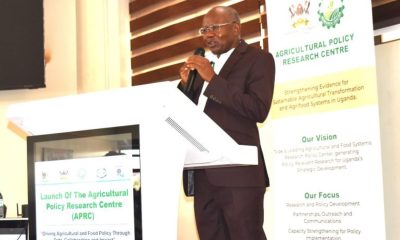

APRC Trains Graduate Students & Stakeholders in the Use of the African Agriculture Adaptation Atlas
-
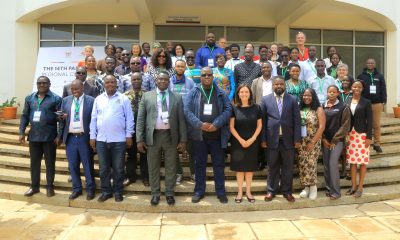

Harmonizing Africa’s Future through Musical Arts Education
-
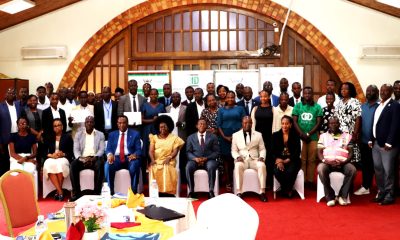

Swedish Ambassador Calls on Uganda to Lead Africa’s E-Mobility Revolution
-
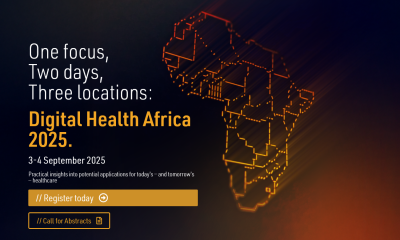

Call for Abstracts: Digital Health Africa 2025
-
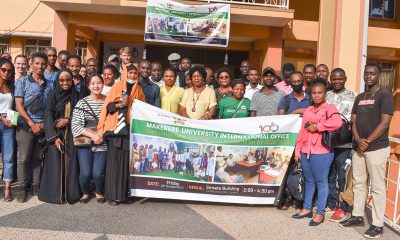

Undergraduate Admission Lists for International Applicants 2025/2026
-
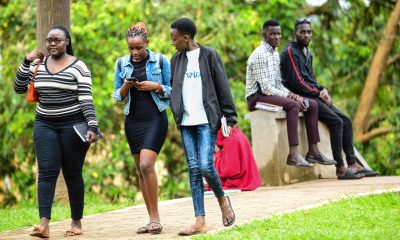

Admission Lists -Disability and District Quota Schemes 2025/26
Veterinary & Biosecurity
CoVAB Annual Report 2024
Published
5 days agoon
June 30, 2025By
Mak Editor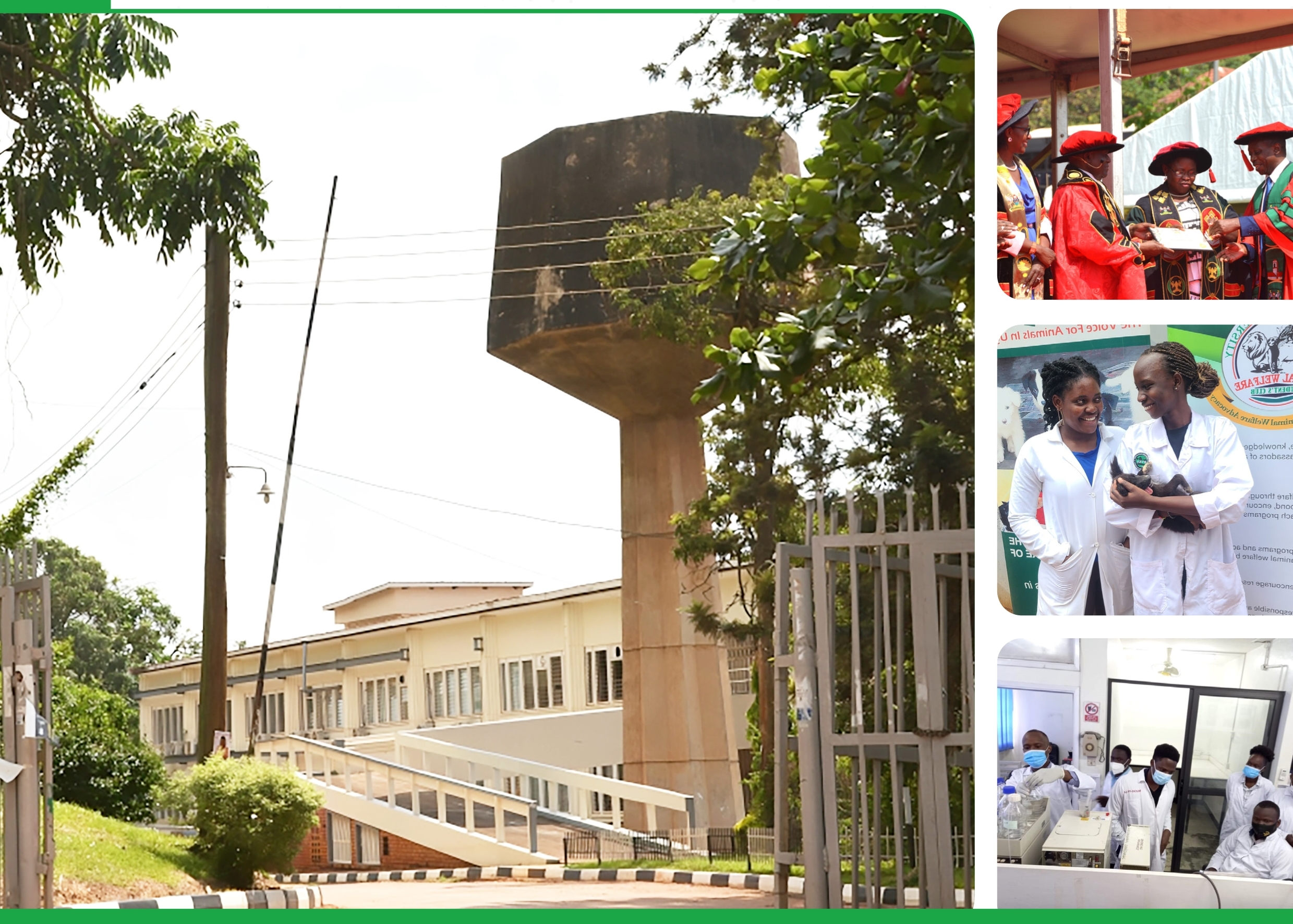
It is my pleasure to share the Annual Report for the year 2024, highlighting the various milestones realized in the College of Veterinary Medicine, Animal Resources, and Biosecurity. First and foremost, I wish to congratulate all of us for the dedication and effort rendered in the running of the college during the period. This collective commitment enabled us to excel in several areas, in line with the mandate of the college and Makerere University at large.
Our mandate teaching and learning, research and innovation, as well as knowledge transfer and partnerships, has been diligently pursued through the concerted efforts of all stakeholders, students, teaching staff, administrative teams, and valued partners. The college takes pride in the contributions made by our partners, who continue to support us in fulfilling this mandate. We particularly appreciate Norbrook (U) Ltd, which has consistently recognized the best-performing veterinary students with cash prizes annually since 2021.
Among the key achievements in 2024 was the expansion of research facilities at CoVAB. The college successfully established new, state-of-the-art laboratories, including an advanced Biomarker Discovery and Translation Research Laboratory, which continues to lead in developing point-of-care diagnostic kits for infectious and noncommunicable diseases, including cancer. The Biomarker Discovery and Translation Research Laboratory at CoVAB represents a significant leap in biomedical research and innovation. This state-of-the-art facility is dedicated to identifying and translating biomarkers into point-of-care diagnostic kits for both infectious and non-communicable diseases, including cancer. In this regard, CoVAB is poised to make tremendous contributions and impacts in advanced diagnostic development through rapid, accessible, and cost-effective diagnostic tools that can be used in both human and veterinary medicine, thereby contributing to improving early disease detection and treatment outcomes.
In the area of interdisciplinary research, the laboratory fosters collaboration among veterinary scientists, medical researchers, and biotechnologists, ensuring a holistic approach to disease management. Given the increasing prevalence of zoonotic diseases, the lab plays a crucial role in bridging veterinary and human health research, contributing to global health security and supporting One Health initiatives. Other achievements at the college are visible in groundbreaking research projects, with several initiatives launched, including studies on zoonotic disease prevention, vaccine development, and drug action mechanisms.
In the area of community outreach, the college expanded its livestock health programs, providing veterinary services to rural communities and enhancing disease surveillance. This is coupled with the increased international Collaborations where CoVAB strengthened partnerships with global institutions, securing funding for One Health initiatives aimed at tackling emerging health challenges.
These advancements and more not mentioned strategically position CoVAB and Makerere University as key players in addressing major animal and human health challenges, particularly zoonotic diseases, which constitute a significant proportion of emerging and reemerging infectious diseases.
The achievements highlighted in this report would not have been possible without the unwavering support, dedication, and collaboration of various stakeholders. We extend our heartfelt gratitude to our students, who are the backbone of our academic community, and whose commitment to learning, research, and innovation continues to propel CoVAB to greater heights. The dedication of our lecturers, researchers, and administrators has been instrumental in driving the college’s mandate forward. Your passion for education, mentorship, and scientific discovery is deeply appreciated. The partners and collaborators, including institutions, organizations, and industry stakeholders such as Norbrook (U) Ltd, have supported our initiatives and strengthened our capacity through funding, knowledge exchange, and collaborative projects. Your contributions are invaluable.
Together, these contributions have made 2024 a truly remarkable year for CoVAB. As we move forward, we remain committed to strengthening these partnerships and building on our shared successes. Thank you for being part of our journey. As we move forward, we anticipate an even more successful period ahead, and together, we shall achieve all that we set out to do.
Prof. Frank Norbert Mwiine
PRINCIPAL
Research
Mak and MSU Host Landmark Symposium on Insects for Food, Feed, and Food Security in Africa
Published
4 weeks agoon
June 10, 2025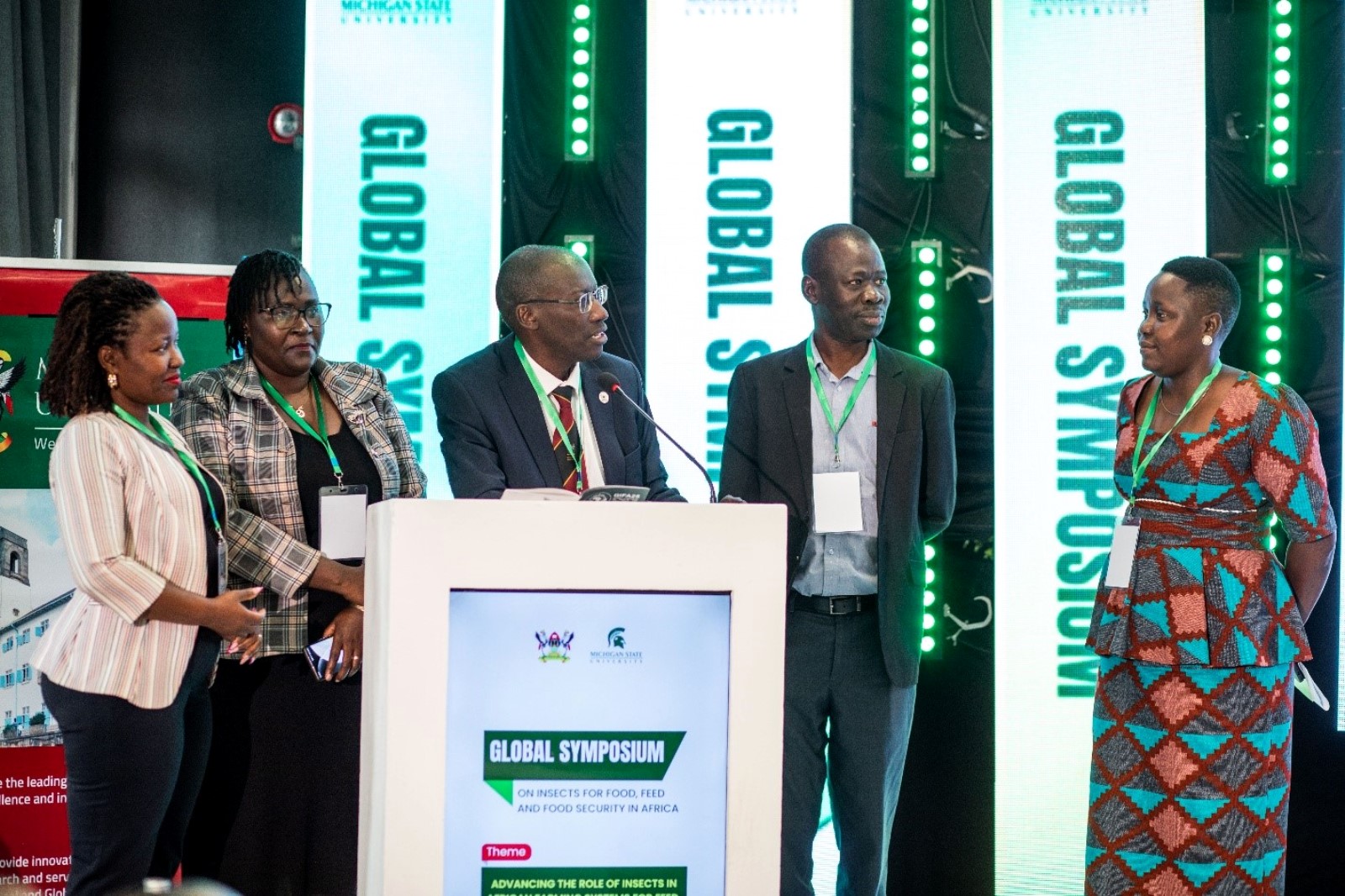
A groundbreaking symposium exploring the role of insects in African farming systems concluded on June 6th, 2025, at Onomo Hotel in Kampala. Convened by Makerere University’s College of Veterinary Medicine, Animal Resources and Biosecurity (CoVAB) in collaboration with Michigan State University (MSU), the event drew participants from over ten countries, including researchers, development experts, regulators, and practitioners.
Under the theme “Advancing the Role of Insects in African Farming Systems for Feed, Food, and Food Security,” the two-day gathering aimed to share knowledge and experiences on integrating insects into food and feed systems to address food security challenges across the continent. The discussions revolved around four key sub-themes namely; Insects as animal feed to promote sustainable livestock production and livelihoods; Insects for human food and food security, including indigenous insect-based diets; Insects for improved soil health and crop production and Commercialization of insect farming, with a focus on regulation and standardization.
The symposium commenced with opening remarks delivered on behalf of Makerere University’s Vice Chancellor, Prof. Barnabas Nawangwe, by his representative, Prof. Frank Norbert Mwiine, Principal of CoVAB. He welcomed participants and commended Dr. Deborah Amulen, Lecturer at CoVAB and chief convener, for organizing a well thought out event. He emphasized that the symposium would not only raise awareness of the role of insects in Uganda’s and Africa’s socio-economic development but also help place insects on the agenda for broader discussions and integration into food security strategies. He said the event served as a platform for knowledge exchange, highlighting the untapped potential of insect farming in transforming food security, sustainable agriculture, and economic growth.
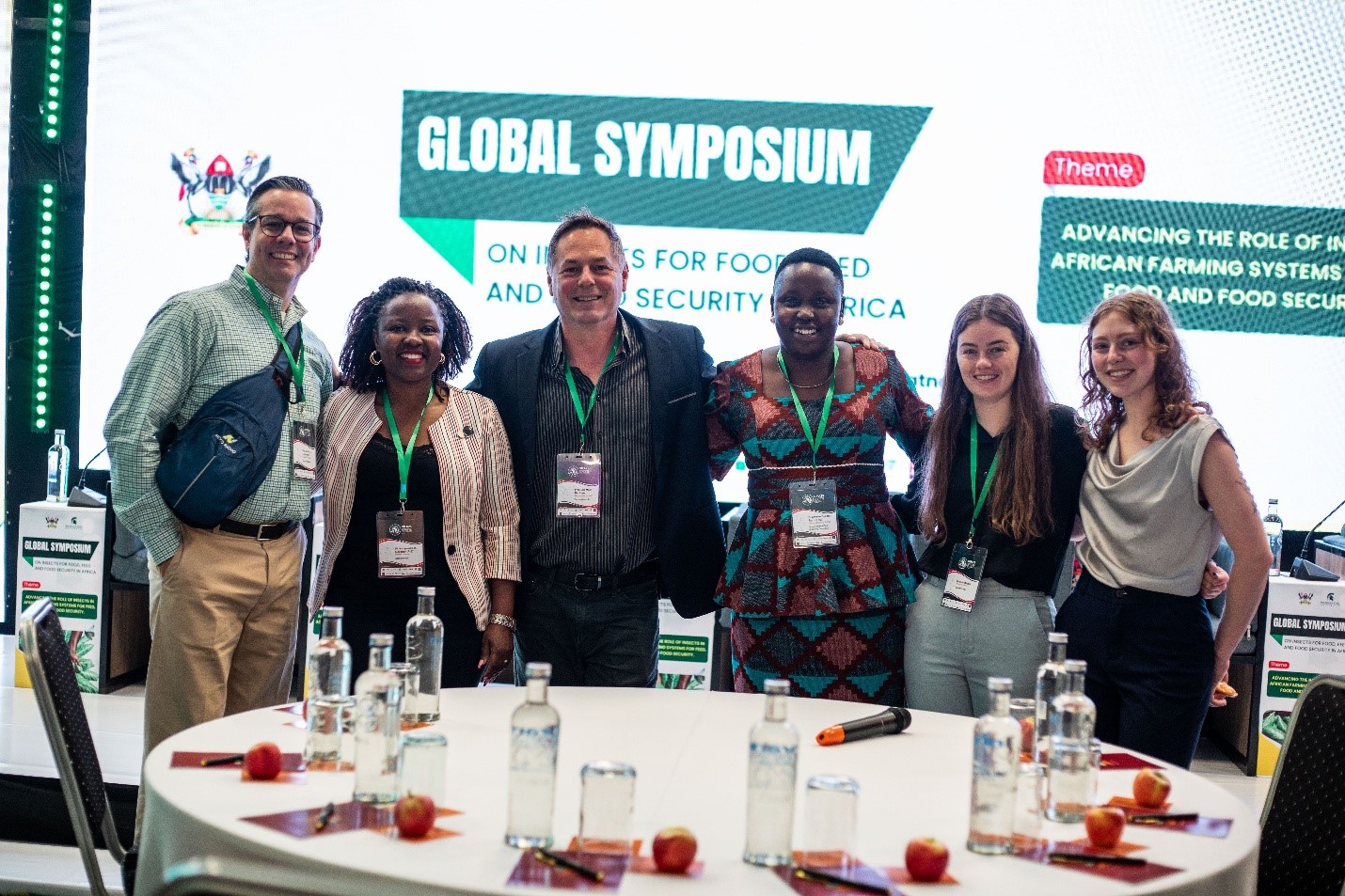
Key facilitators at the symposium were esteemed experts from leading institutions worldwide, who shared their insights on insect-based food systems and sustainable agriculture. Among the distinguished speakers were Prof. Jeffrey K. Tomberlin from Texas A&M University, Prof. Eric M. Benbow from Michigan State University, Prof. Florence Dunkel from Montana State University, Dr. Denise Beesigamukama, a Postdoctoral Fellow, ICIPE Kenya and Dr. Deborah Amulen the host from Makerere University. These are exemplified in their contribution towards academic research and leadership, policy and industry impact and more importantly their expertise in insect science.
During the deliberations, the experts emphasized that insects offer a viable, sustainable, and nutrient-rich solution to Africa’s growing food demands. The event underscored ongoing research and commercialization efforts aimed at mainstreaming insect farming into the agricultural sector. As global interest in alternative protein sources continues to rise, the symposium marked a significant step toward harnessing the potential of insects to enhance food security in Africa.
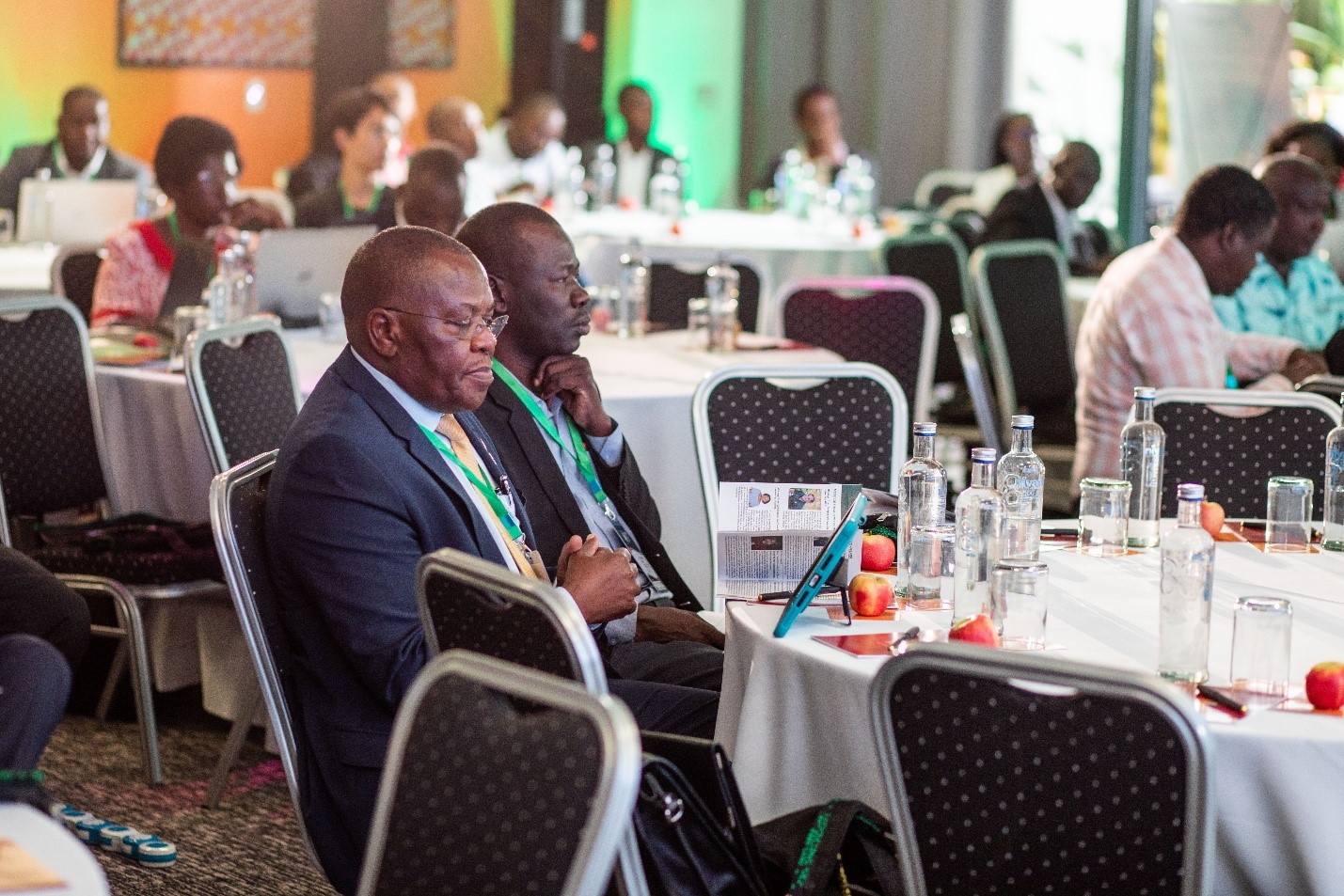
Experts underscored that Africa is home to over 470 recognized edible insect species, providing a rich source of proteins, fats, and essential micronutrients. Insects have historically been a staple in diets across Uganda, Southern Africa, and other regions, serving as a vital food source in times of drought, conflict, and food scarcity. One of the most discussed innovations at the event was the large-scale farming of Black Soldier Fly, which is being utilized to produce not only the larvae but also frass, a high-protein animal feed and organic fertilizer to enhance soil health and boost agricultural yields.
Several scholars presented their research in the area of Insects, where together with the farmers, industry representatives, policy makers and practitioners contributed valuable perspectives on advancing the role of insects in food security, animal feed, and ecological sustainability in Africa. Their discussions underscored the importance of research, policy, and commercialization in expanding insect farming across the continent.
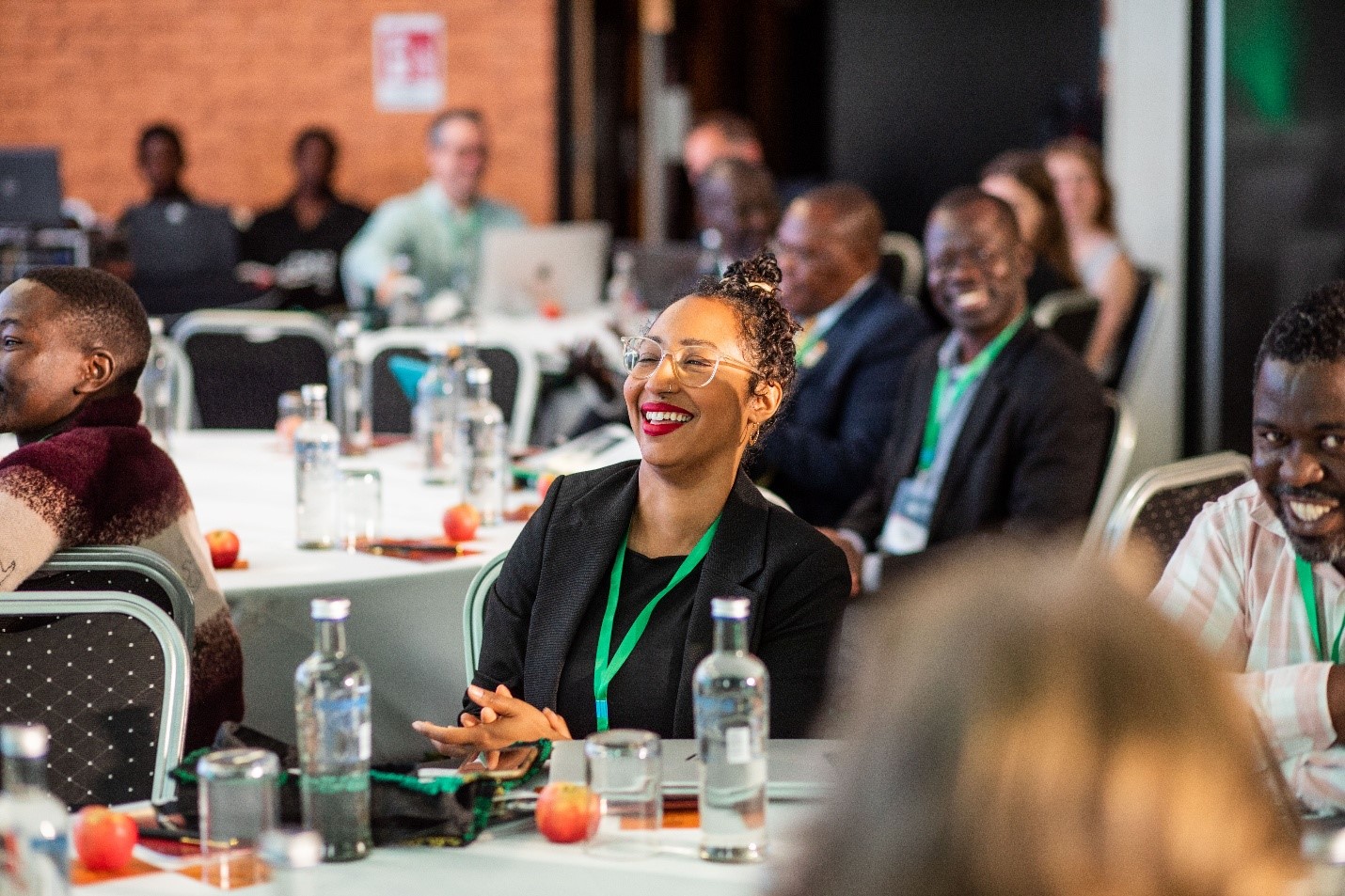
One of the keynote discussions highlighted Uganda’s rich tradition of consuming insects as part of its food culture, reinforcing their significance in nutrition and sustainability. Participants shared insights on local insect consumption practices and their role in livelihoods, drawing from countries like Cameroon, Malawi and many others represented at the event. The forum also featured representatives from key institutions, including the National Council for Science and Technology and The National Agricultural Research Organization (NARO) which contributed perspectives on research, policy development, and commercialization of insects as sustainable food sources, the Ministry for Agriculture, Animal Industry, and Fisheries (MAAIF), emphasizing the Ugandan government’s support for insect farming initiatives.
The Kenya based scientific research institute, the International Centre of Insect Physiology and Ecology (ICIPE) played a key role in the discourse and exhibited several innovations arising from research and their work in insects. Experts explored how insects can revolutionize animal feed production, providing an affordable, high-protein alternative to conventional sources.
With global attention shifting toward alternative and sustainable food sources, experts stressed the need for policy standardization and enhanced investment in insect-based food systems across Africa. During the event, MAAIF announced a $325 million investment through a six-year Smart Agriculture Transformation Project, aimed at expanding sustainable farming practices, reducing environmental impact, and increasing food security through alternative protein sources.
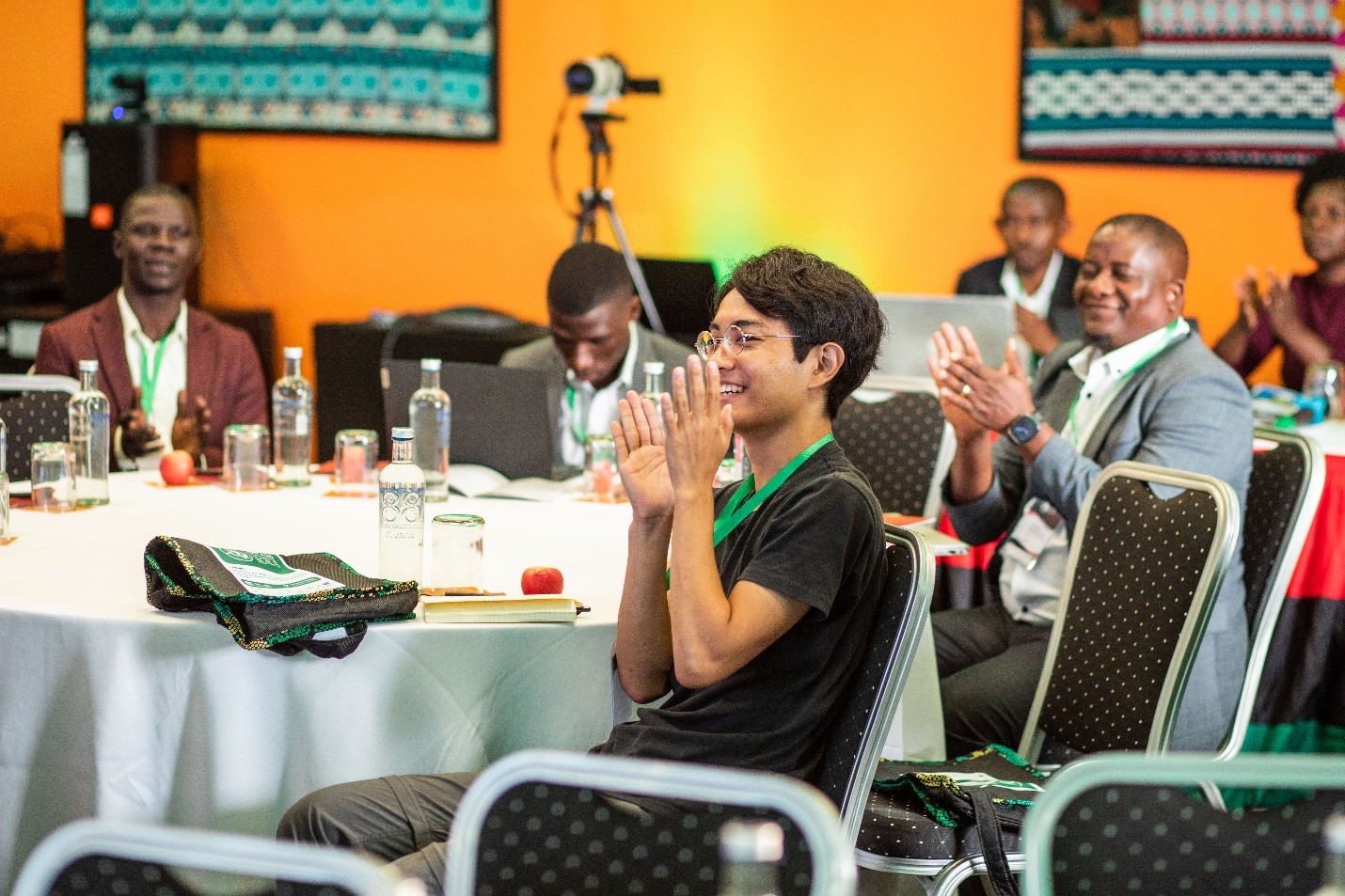
The symposium reaffirmed Africa’s position at the forefront of insect farming research, with discussions centered on scaling production, improving regulation, and leveraging indigenous knowledge for food security solutions. Moving forward, participants emphasized the importance of quality control, standardization, and policy frameworks to ensure safety, scale production, and boost market competitiveness. With Uganda leading discussions on alternative protein sources, the symposium laid the foundation for future innovations in agriculture.
Veterinary & Biosecurity
Makerere Receives Scientific Equipment worth over UGX 1.4 Billion
Published
4 weeks agoon
June 10, 2025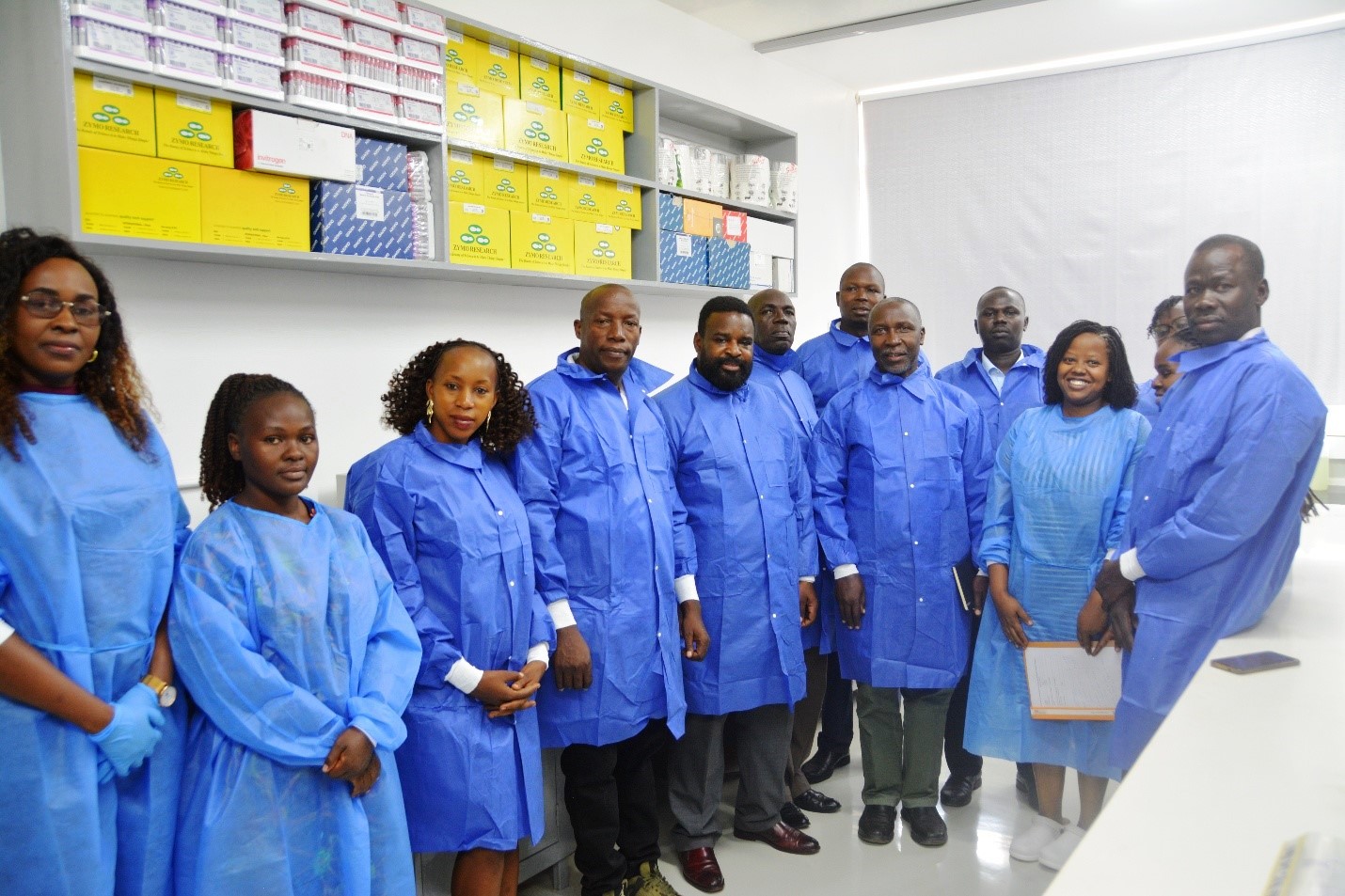
Makerere University has secured a valuable donation of scientific laboratory equipment worth USD 400,000 (Shs. 1.4 billion) through the Seeding Labs’ Instrumental Access Program. This equipment will significantly enhance teaching, research, and diagnostic services at the College of Veterinary Medicine, Animal Resources and Biosecurity (CoVAB).
Following the announcement of a successful application in May 2024, Makerere joins a global network of 137 institutions across 39 countries, gaining access to advanced tools that will elevate STEM education and innovation. This development strengthens the university’s commitment to scientific excellence and fosters collaboration in veterinary medicine and related fields.
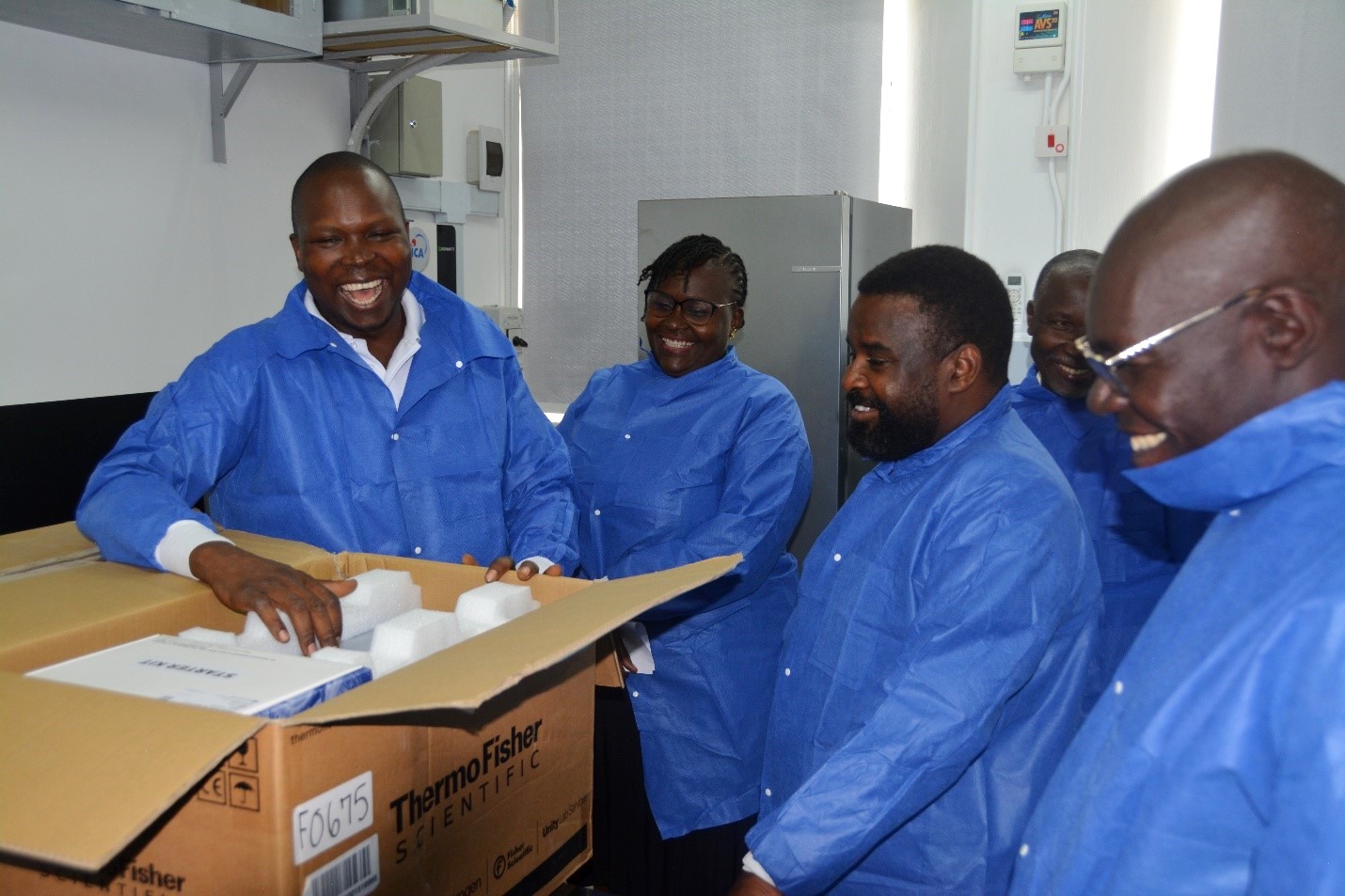
The consignment was received at the College of Veterinary Medicine, Animal Resources and Biosecurity and witnessed by Prof. Edward Wamala, who represented the Vice Chancellor, Prof. Barnabas Nawangwe. In his remarks, Prof. Wamala described the newly acquired scientific equipment as a significant milestone in Makerere University‘s pursuit of academic excellence, innovation, and impactful research. He emphasized its transformative role in strengthening research infrastructure, advancing ongoing scientific inquiry, and empowering both students and faculty to engage in high-impact studies.
Expressing appreciation to Seeding Labs’ Instrumental Access Program for their partnership, he underscored that this contribution was more than a donation, rather an investment in the future of Uganda and Africa at large. He highlighted that the support reflects confidence in Makerere’s students and scientists, recognizing their responsibility to address pressing global challenges in animal health, biosecurity, and public health.
Prof. Wamala further noted that the College of Veterinary Medicine, Animal Resources, and Biosecurity plays a vital role in addressing issues at the intersection of human, animal, and environmental health which is the core of the One Health approach that is emphasized today. With the newly acquired equipment, the college’s capacity will be greatly enhanced, improving diagnostic capabilities, supporting the livestock industry, and contributing to disease surveillance efforts at both local and national levels, he noted.
The Deputy Principal CoVAB, Assoc. Prof. James Okwee-Acai said the equipment received is a significant milestone in the college in its efforts to strengthen science and research capacity. He commended the management of Makerere University for the contribution and support that enabled the shipment and clearance of the consignment. While commenting about the equipment contained in the donation, Prof. Acai said many of items were state-of-the-art and would definitely boost the work of teaching and learning at the college across the two schools.
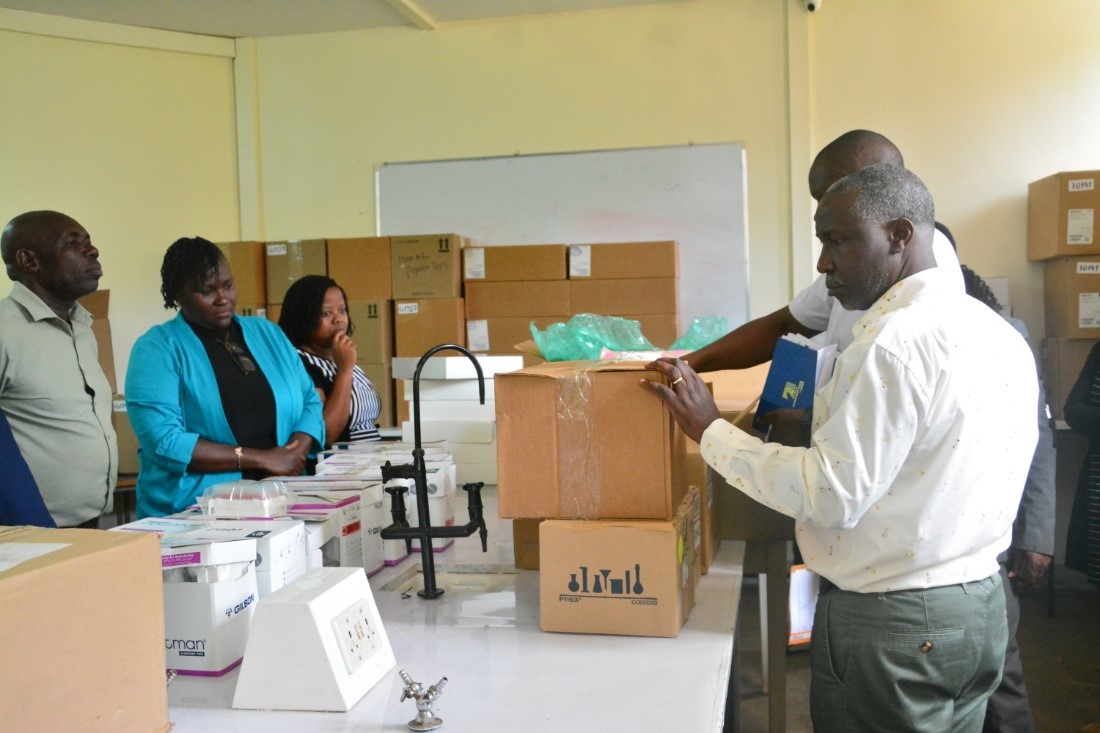
The equipment is expected to greatly enhance the University’s ability to conduct cutting-edge research and provide high quality education in the veterinary sciences. This donation showcases the growing partnerships and collaborations that Makerere University is building to drive innovation and academic excellence. With this valuable addition to its research infrastructure, Makerere University is poised to make even greater strides in advancing scientific knowledge and addressing critical challenges in the veterinary field and looks forward to the transformative impact it will have from training students on the latest analytical techniques to enabling faculty led studies that advance veterinary medicine.
The donors, the Instrumental Access is the flagship program of Seeding Labs, which is a US-based NGO with a mission to increase access to resources for science in developing countries. CoVAB’s participation in Instrumental Access makes Makerere University a member of the community of 137 Instrumental Access awardees in 39 countries worldwide.
The Department of Veterinary Pharmacy, Clinical and Comparative Medicine, Makerere University was chosen for the Instrumental Access award after a rigorous and competitive selection process that receives and evaluates applications from institutions around the world. To be considered, applicants outlined the ways that an infusion of scientific equipment would remove barriers to STEM education and research at their institution, paving the way for new avenues of scientific inquiry and expanding hands-on opportunities for students.
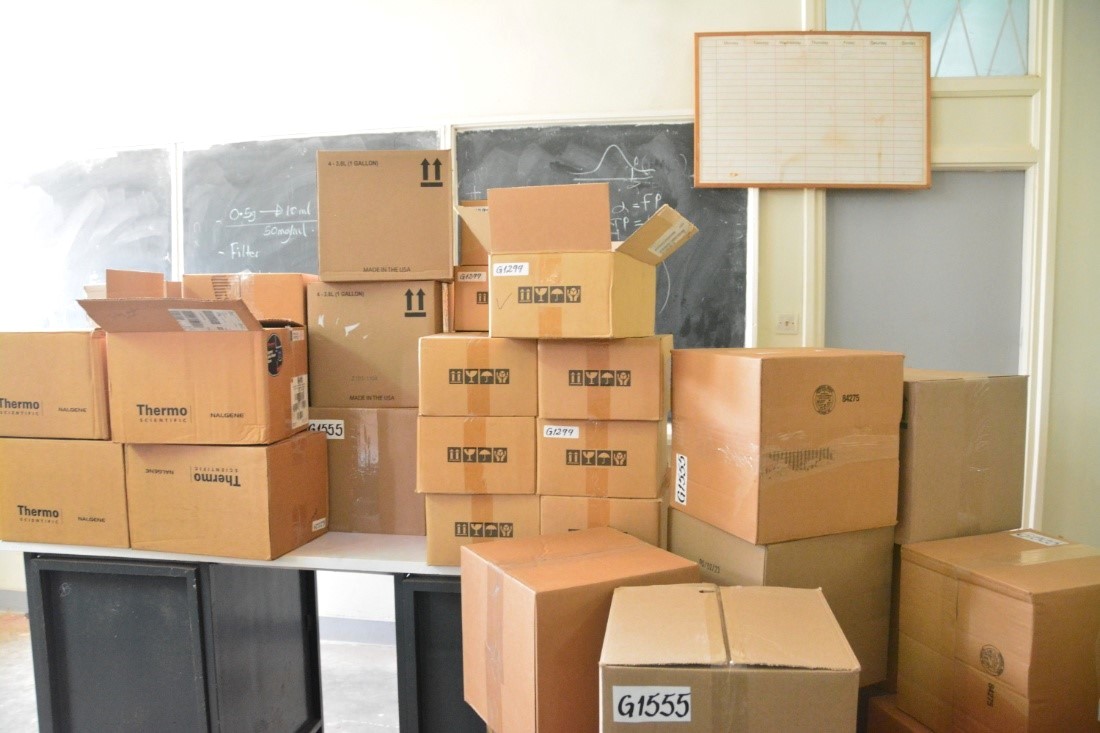
The equipment will provide a foundation for other critical resources that allow scientists to generate new knowledge, leverage sustainable funding, and better prepare university students for the scientific workforce and innovation economy.
More photos from the unveiling
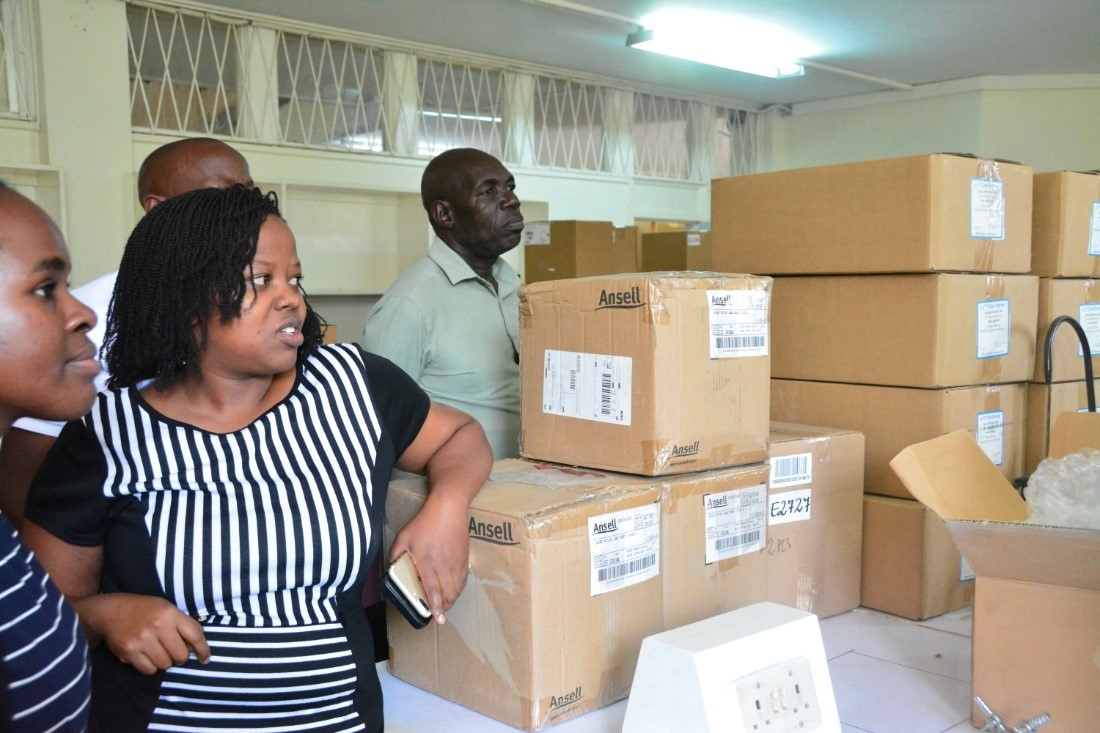
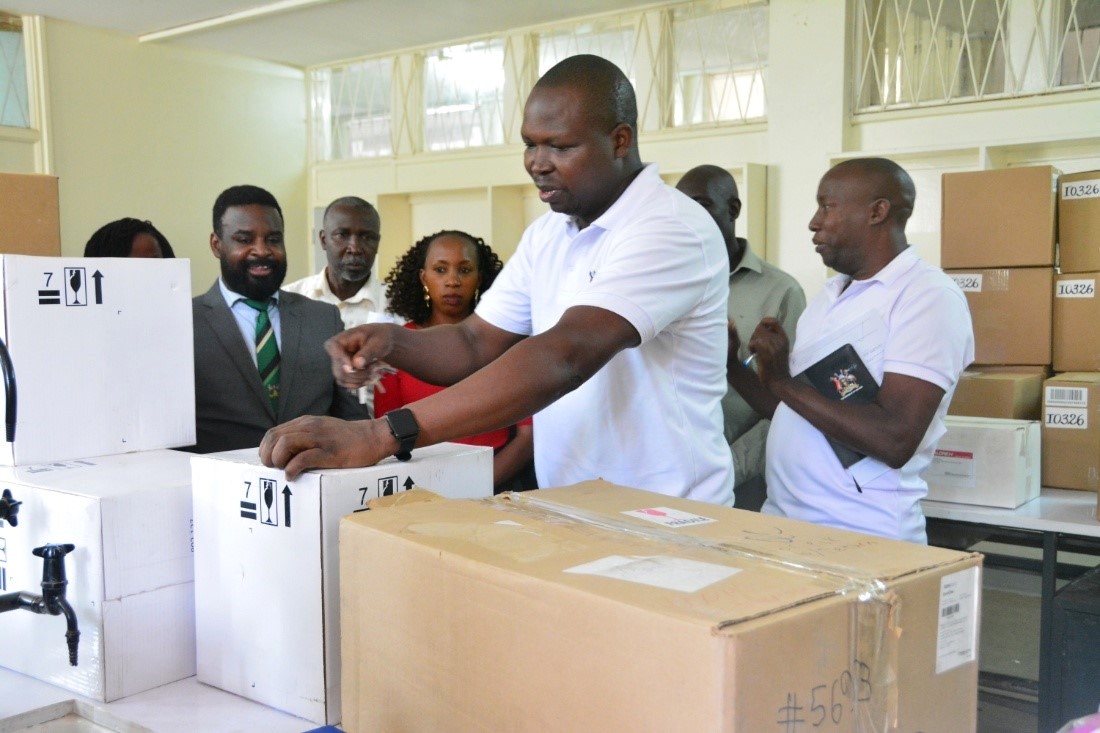
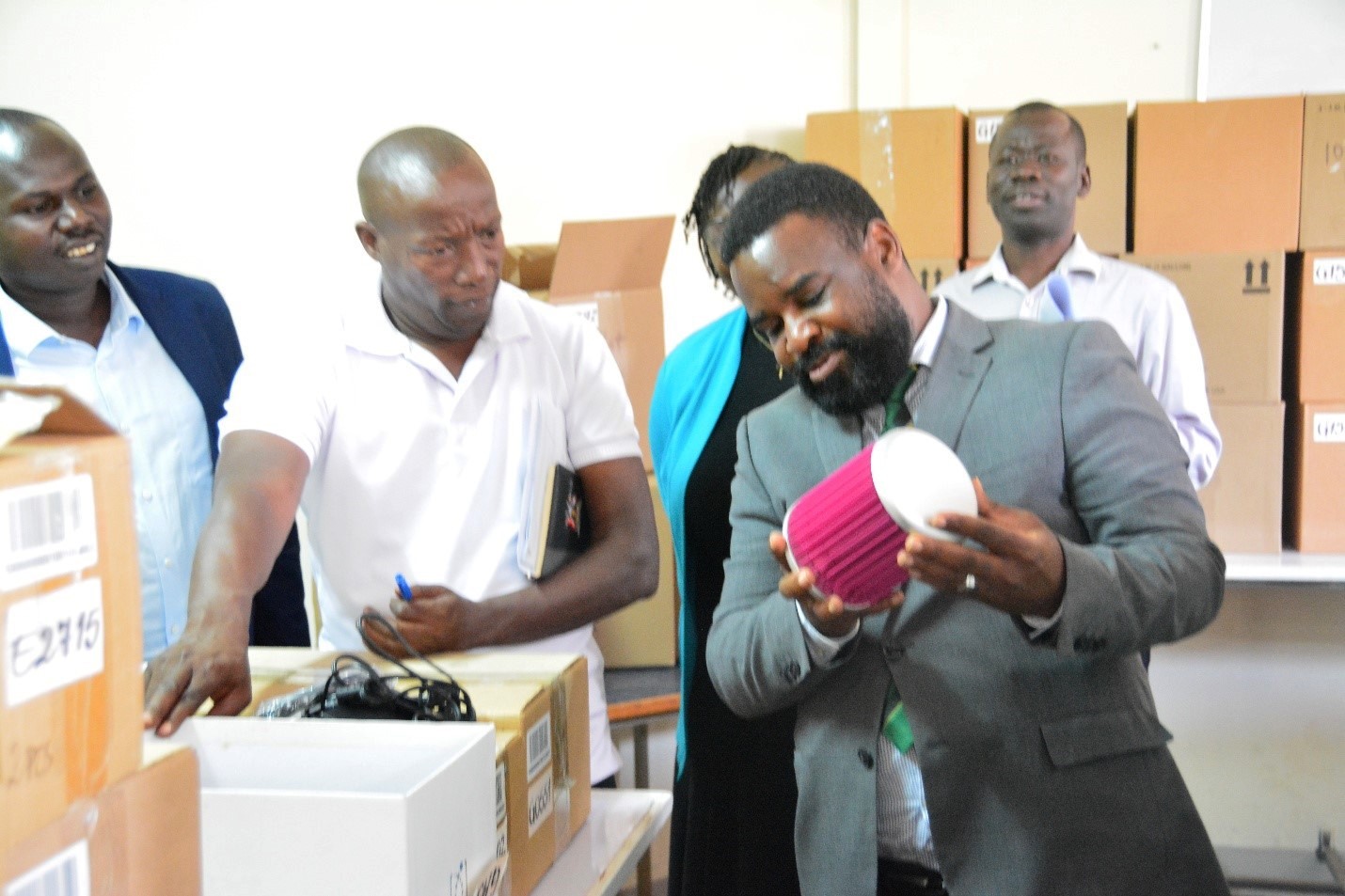
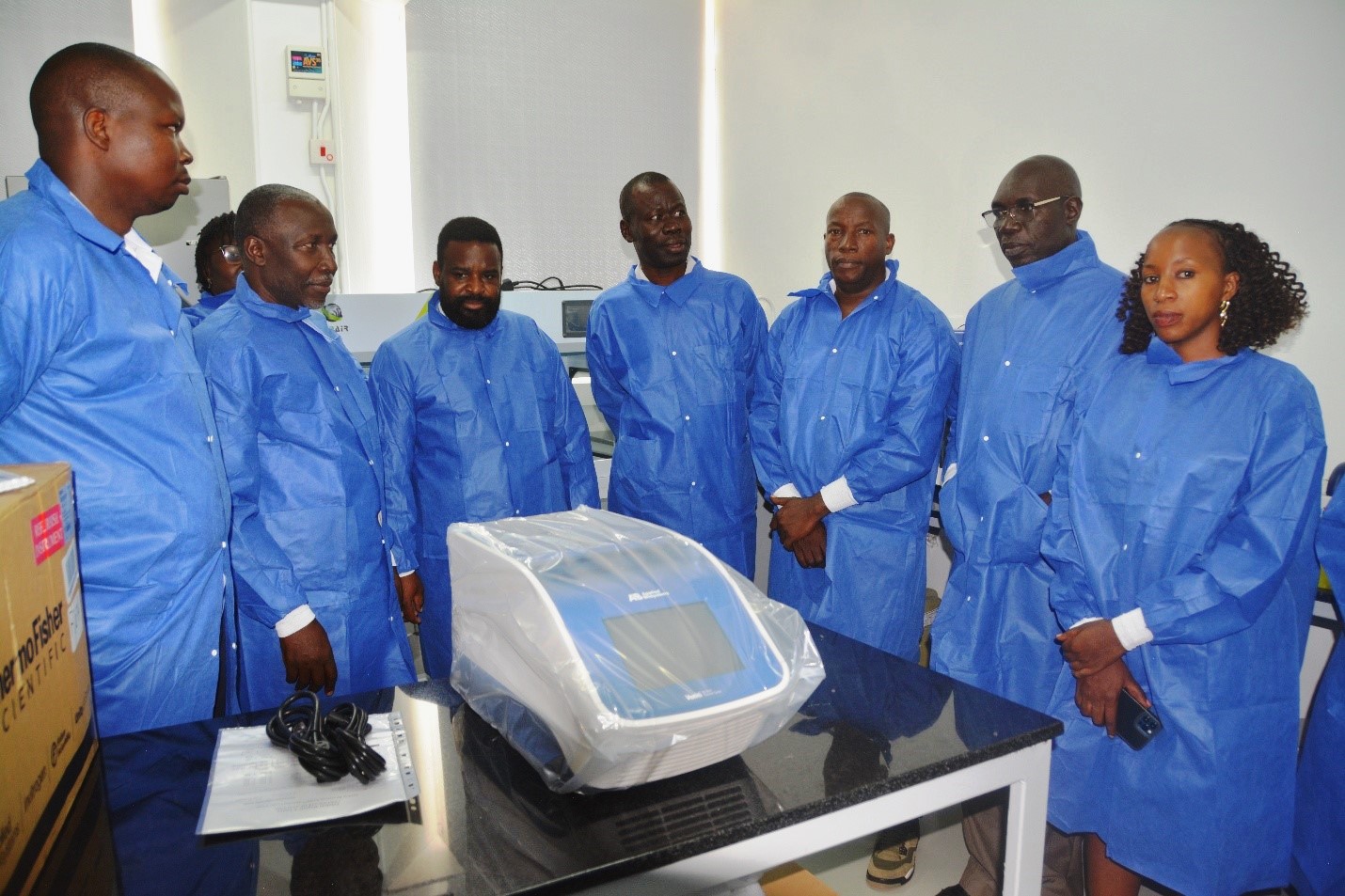
Trending
-

 Education1 day ago
Education1 day agoAdmission List to Bachelor of Education External (BED) 2025/26 -Private Sponsorship
-

 General1 week ago
General1 week agoMature Age Scheme Exam Results for 2025/2026
-

 General2 weeks ago
General2 weeks agoFreshers’ Joining Instructions 2025/2026
-

 General4 days ago
General4 days agoUndergraduate Admission List Self Sponsorship Scheme 2025/2026
-

 General2 weeks ago
General2 weeks agoMastercard Foundation Board pays its inaugural visit to Makerere University
